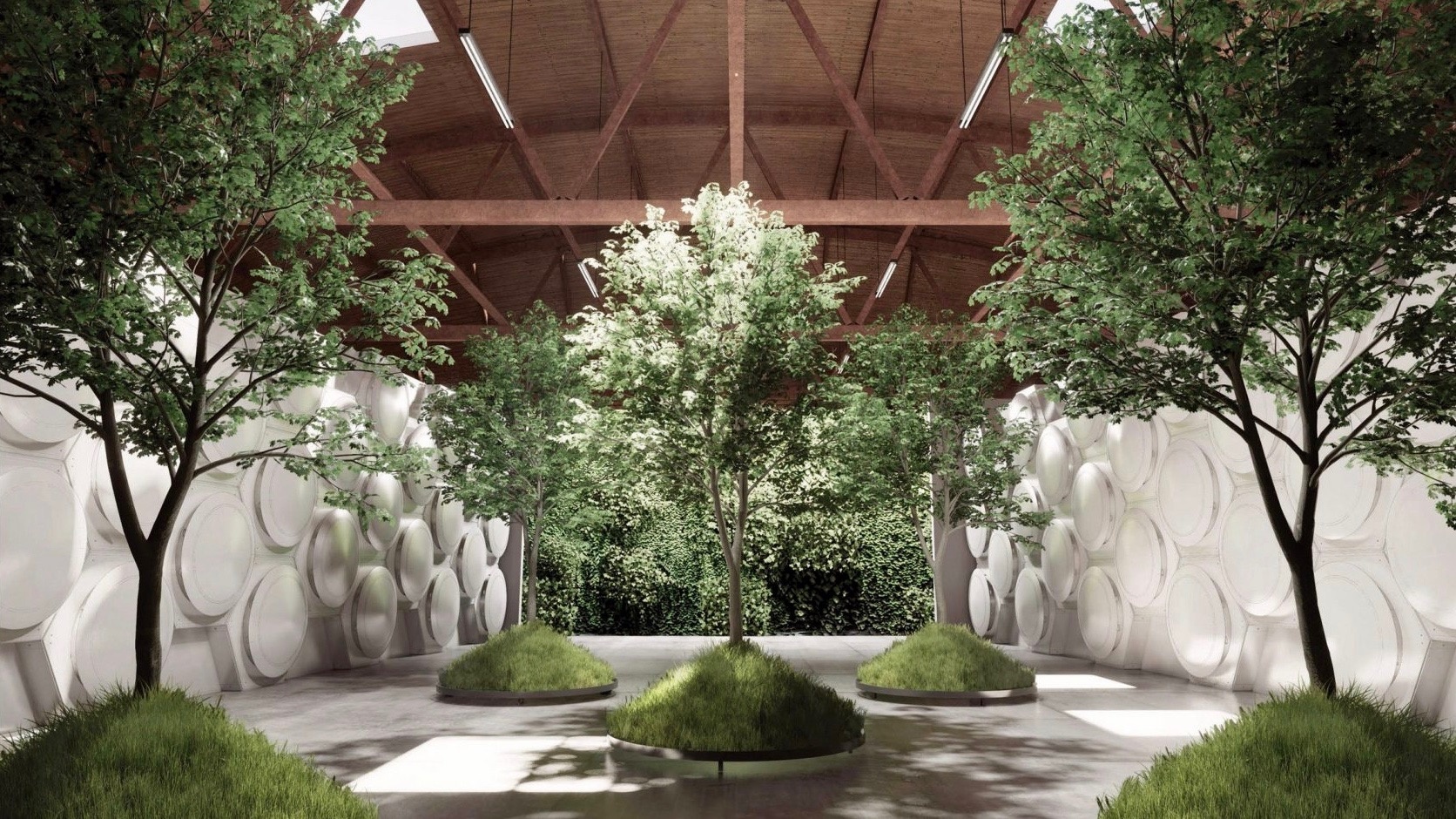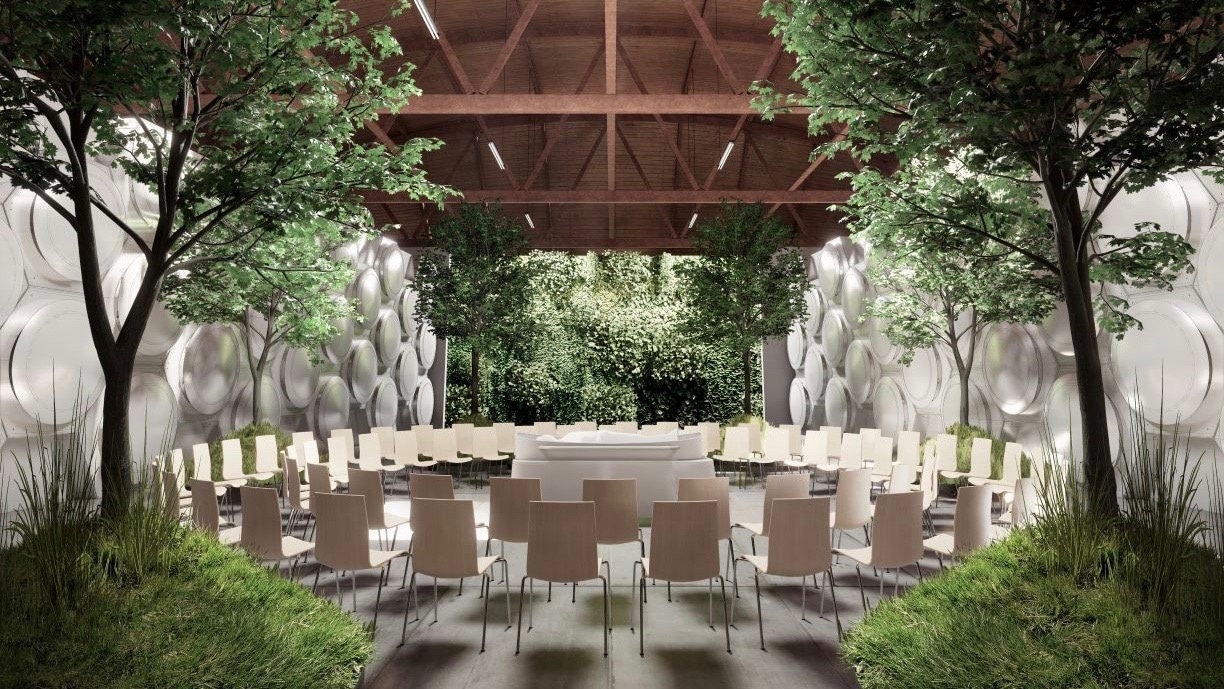

Olson Kundig
No longer will the options when we die be a choice between just burial or cremation. Soon it will be possible to compost your remains and leave your loved ones with rich soil, thanks to a new funeral service opening in Seattle in 2021 that will convert humans into soil in just 30 days, as The Independent reported.
Recompose markets itself as a service offering “natural organic reduction” to the public, according to its website. The facility is meant to recognize that death is a momentous spiritual event and to take the opportunity to reconnect funeral rites with nature and to offer a greener alternative to burial or cremation, according to Fast Company.
Recompose, which will be able to hold 75 bodies in its flagship facility in Seattle, says it will turn a dead body into usable soil in just 30 days in a process that is much less resource-intensive than cremation or burial. In fact, according to the The Independent, the process will use one-eighth the energy of cremation and save a metric ton of CO2 from being emitted, compared to most forms of burial.
A burial usually requires chemical-laden embalming, while cremation is energy intensive, according to the architects at Olson Kundig who designed the new facility, as Fast Company reported.
“Our service – recomposition – gently converts human remains into soil, so that we can nourish new life after we die,” Recompose’s website says. “Recompose takes guidance from nature. At the heart of our model is a system that will gently return us to the earth after we die.”
“By converting human remains into soil, we minimize waste, avoid polluting groundwater with embalming fluid, and prevent the emissions of CO2 from cremation and from the manufacturing of caskets, headstones, and grave liners,” the company’s website explains. “By allowing organic processes to transform our bodies and those of our loved ones into a useful soil amendment, we help to strengthen our relationship to the natural cycles while enriching the earth.”

Olson Kundig
The project has been in the works since 2016 when Recompose founder and CEO Katrina Spade and her team collaborated with architects to create a prototype facility, according to Fast Company.
However, the project only got off the ground after Washington became the first state to explicitly allow natural organic reduction for human remains, or human composting. The law, which will go into effect in May 2020, allows funeral homes to accelerate the process of turning human remains into soil, which allows for environmentally friendly burials in urban and suburban areas that do not have wide-open tracts of land available for burial, according to The Independent.
Recompose uses stacked hexagonal vessels, resembling a honeycomb, to store dead bodies. The bodies sealed in the hexagonal tubes are covered in woodchips, alfalfa and hay. There the temperature is regulated, the dirt is aerated, and conditions are optimized for bacteria to breakdown organic matter over the course of several weeks, as The Independent reported.
“We asked ourselves how we could use nature – which has perfected the life/death cycle – as a model for human death care,” said Katrina Spade, as The Independent reported. “We saw an opportunity for this profound moment to both give back to the earth and reconnect us with these natural cycles.”
A single body plus the woodchips, alfalfa and hay will net one cubic yard of soil, or several wheelbarrows full. Some families will take the soil home to use, while others can donate it to conservation projects on the slopes of Bells Mountain in Washington, according to the Seattle Times.
“These days, some families regard even ashes from cremation as a burden, not a joy,” Spade said to the Seattle Times.. “As in, ‘we’ve had these ashes in the garage for six years.’ And we’re creating a cubic yard of soil.”
- Bill Gates Unveils Toilet That Transforms Waste Into Fertilizer ...
- Washington Becomes First State to Legalize Human Body Composting
- First Human-Composting Funeral Home in the US Is Open for Business - EcoWatch

 233k
233k  41k
41k  Subscribe
Subscribe 